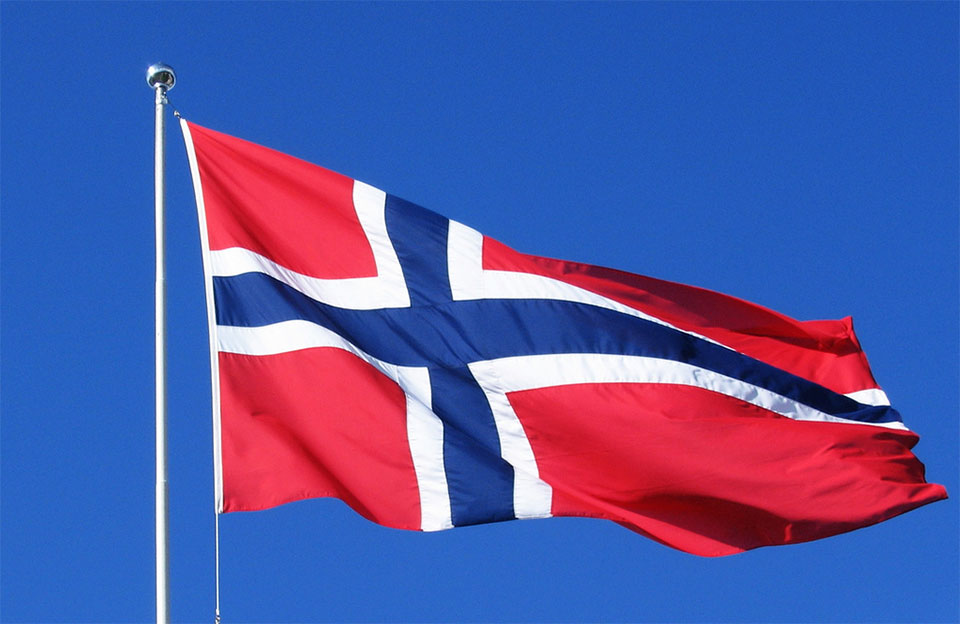Norway’s Central Bank Set to Decide on CBDC Implementation Next Year
25.10.2024 13:30 1 min. read Alexander Zdravkov
Next year, Norges Bank, Norway's central bank, will decide on the potential establishment of its own central bank digital currency (CBDC).
Deputy Governor Pal Longva stated that the bank is working on finalizing a recommendation but is not rushing the process. While other European nations like Switzerland advance their digital currency projects, Norway is adopting a cautious approach, carefully evaluating the complexities involved.
Norges Bank is considering two CBDC models: a retail version for consumer transactions and a wholesale version for interbank transactions, with a current focus on the latter due to its perceived ease of implementation.
Research suggests that a wholesale CBDC is more likely to be introduced within six years compared to a retail counterpart.
Norway is already one of the world’s most cashless societies, with 98% of its population using debit cards and over 95% relying on mobile payments.
Despite the decline in cash use, it has stabilized at low levels. Norges Bank is assessing the implications of a CBDC, particularly concerning privacy and its impact on the banking sector, with a recommendation expected by 2025 after further studies and consultations.
-
1
Elon Musk’s X Prepares to Enter the Fintech Arena
20.06.2025 13:00 1 min. read -
2
China Pushes Digital Yuan Expansion as Global Currency Power Shifts
19.06.2025 17:00 1 min. read -
3
Fiserv to Launch FIUSD Stablecoin Across Its Massive Banking Network
23.06.2025 21:00 1 min. read -
4
Mastercard Integrates Chainlink to Power Direct Crypto Access for Cardholders
25.06.2025 18:00 1 min. read -
5
BIS Slams Stablecoins, Calls Them Ill-Suited for Modern Monetary Systems
26.06.2025 9:00 1 min. read
Key U.S. Events to Watch This Week That Could Impact Crypto
The first week of July brings several important developments in the United States that could influence both traditional markets and the cryptocurrency sector.
Here Is How Your Crypto Portfolio Should Look Like According to Investment Manager
Ric Edelman, one of the most influential voices in personal finance, has radically revised his stance on crypto allocation. After years of cautious optimism, he now believes that digital assets deserve a far larger share in investment portfolios than ever before.
GENIUS Act Could Reshape Legal Battle over TerraUSD and LUNA Tokens
In the case involving Terraform Labs and its co-founder Do Hyeong Kwon, the defense has asked the Federal Court for the Southern District of New York to extend the deadline for pretrial filings by two weeks, pushing it beyond the original date of July 1, 2025.
Coinbase Surges 43% in June, Tops S&P 500 After Regulatory Wins and Partnerships
Coinbase has emerged as the best-performing stock in the S&P 500 for June, climbing 43% amid a surge of bullish momentum driven by regulatory clarity, product innovation, and deeper institutional interest in crypto.
-
1
Elon Musk’s X Prepares to Enter the Fintech Arena
20.06.2025 13:00 1 min. read -
2
China Pushes Digital Yuan Expansion as Global Currency Power Shifts
19.06.2025 17:00 1 min. read -
3
Fiserv to Launch FIUSD Stablecoin Across Its Massive Banking Network
23.06.2025 21:00 1 min. read -
4
Mastercard Integrates Chainlink to Power Direct Crypto Access for Cardholders
25.06.2025 18:00 1 min. read -
5
BIS Slams Stablecoins, Calls Them Ill-Suited for Modern Monetary Systems
26.06.2025 9:00 1 min. read


